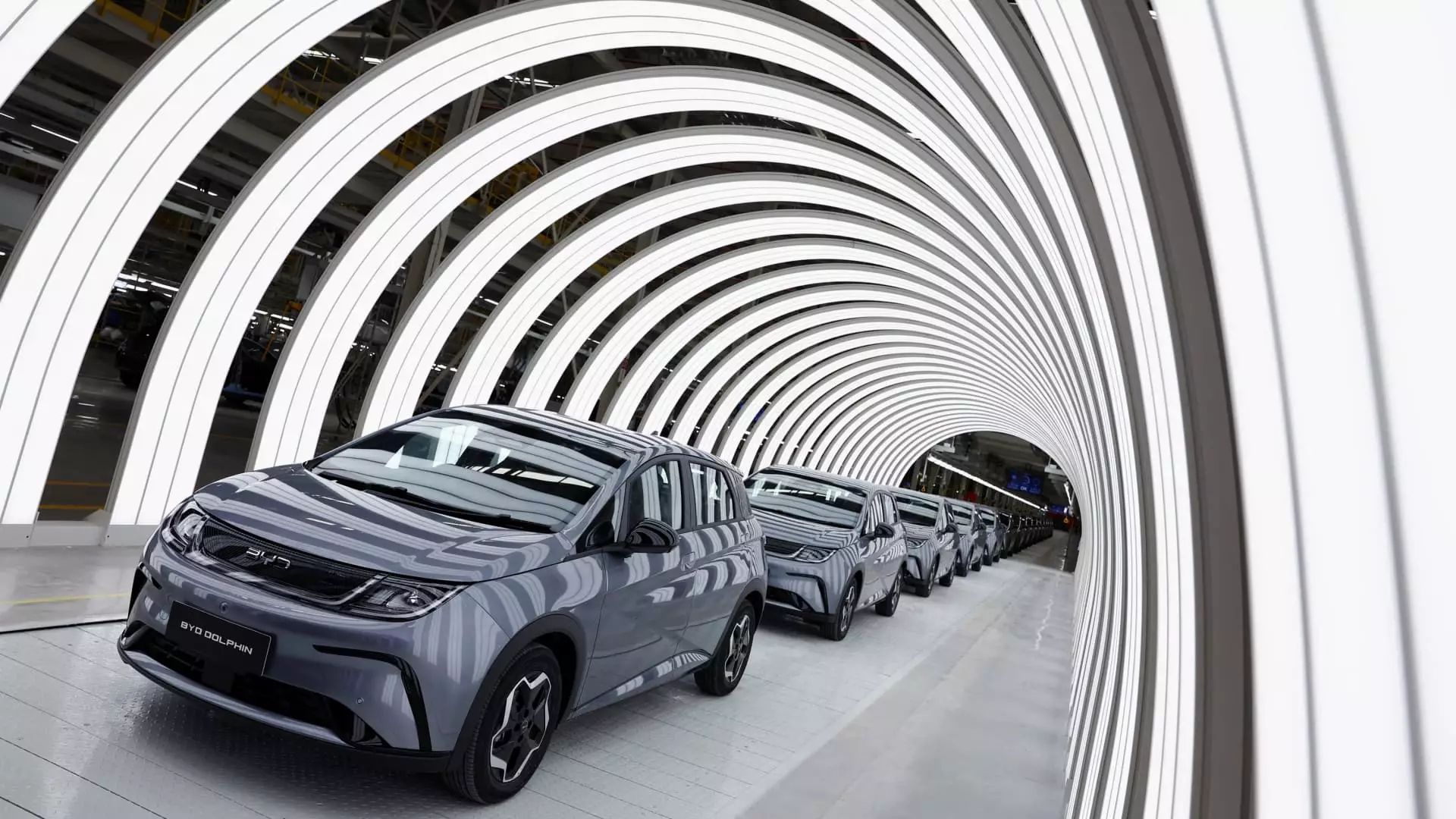BYD’s Leap into Driver-Assistance: Implications for the Automotive Supply Chain

The surge of interest in electric vehicles (EVs) and their technological advancements has seemingly reached new heights with BYD’s recent introduction of an innovative driver-assistance system across its vehicle lineup. Analysts anticipate that this move will not only elevate BYD’s position in the competitive electric car market but also generate significant dynamics within its supply chain ecosystem. This article delves into the implications of BYD’s strides towards advanced driver-assist technology and what it may mean for its partners and competitors in an ever-evolving automotive landscape.
In a week that saw the shares of BYD hit an all-time high, the company unveiled its latest driver-assistance system, which is available for various models, including more budget-friendly options priced below 70,000 yuan (approximately $9,600). This strategic emphasis on affordability could alter the competitive landscape, pushing other automakers to reassess their product offerings. The market’s immediate reaction underscores the gravity of this launch. Analysts from Nomura highlight that suppliers of driver-assist components are bound to experience substantial growth in light of BYD’s innovations. This perspective suggests that BYD is set not only to enhance its own brand value but also to drive an upswing for its suppliers amid increasing demand for smart driving capabilities.
An essential aspect of BYD’s driver-assistance rollout is its partnership with DeepSeek, where artificial intelligence (AI) functionalities are integrated into the system. This collaboration signals a growing trend within the automotive sector, emphasizing the necessity of advanced technologies to maintain market relevance. As highlighted by Nomura analysts, the push towards smart features is likely to engage other manufacturers, thereby enhancing demand for cutting-edge driving technologies across the automotive industry. This integration of AI not only bolsters BYD’s offerings but also positions the company in the vanguard of an industry-wide technological arms race.
As BYD’s driver-assistance system gains traction, companies within its supply chain stand to benefit considerably. Analysts at Goldman Sachs have drawn attention to several key suppliers, including BYD Electronics, Horizon Robotics, and Hesai Technology. BYD Electronics, as a subsidiary of the automaker, is well-positioned to profit from increased demand for autonomous components, while Horizon Robotics is critical, given its role as a significant semiconductor supplier. With rising expectations, Goldman Sachs recently enhanced its price target for Horizon Robotics, projecting substantial growth in revenue stemming from new chipsets being adopted across the automotive sector.
The situation for Hesai Technology appears equally promising, even in the face of regulatory hurdles due to allegations concerning links to the Chinese military. Analysts have raised their ratings for Hesai, suggesting confidence in the firm’s trajectory amid a new product cycle. The demand for lidar technology is particularly noteworthy; these sensors play a vital role in creating 3D maps of surroundings vital for the functionality of driver-assistance systems. The synergy among these suppliers augurs well for their respective futures, with an anticipated boom in technology adoption as firms strive to innovate.
The rapid escalation of BYD’s driver-assistance features has not gone unnoticed by competitors, most prominently Tesla. The latter’s shares declined in response to BYD’s announcements, even as it continues to develop its own autonomous technologies. The actions of BYD may compel other manufacturers, such as Tesla, to accelerate their own advancements in smart driving to avoid being outpaced in China’s electrified automotive sector.
Moreover, as the Chinese government fosters a self-reliant tech ecosystem, the swift pace of progress in local corporations could pose increased competitive pressure on Western firms. The drive toward advanced driver-assist systems is not merely about keeping up; it’s about leading the charge in a sector that is forming the future of transportation. As competitors face the necessity to adopt similar technologies, the demand for smart-driving components across the entire automotive market is likely to flourish.
BYD’s recent foray into driver-assistance systems exemplifies how innovation can spur significant shifts within not only a single company but the entire automotive supply chain. As the need for advanced functionalities expands among manufacturers vying for consumer attention, companies involved in providing critical components will enjoy increased demand and opportunities for growth. This moment marks a pivotal turning point, igniting further attempts at technological advancement and competitive strategy among automakers, not just in China but globally. The path ahead is bound to be turbulent, but for those ready to capitalize on this seismic shift, the future holds a rich potential for reward.





